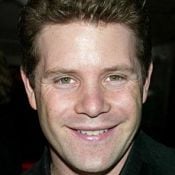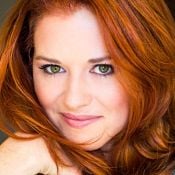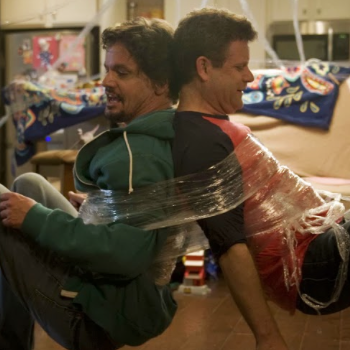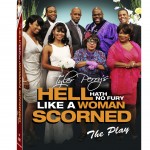width:220px; margin: 0 auto; } ul.xtabs { padding: 5px; font-size: 0; margin:0; list-style-type: none; text-align: left; } ul.xtabs li { display: inline; margin: 5px 3px; margin-left: 5px; line-height:25px; } ul.xtabs li a { font: normal 12px Verdana; text-decoration: none; position: relative; z-index: 1; padding: 0px; color: #000; background: #dddddd; outline:none; } ul.xtabs li a:visited { color: #000; } ul.xtabs li a:hover{ background:#5EADD0; } ul.xtabs li.selected a { /*selected tab style */ position: relative; top: 0px; font-weight:bold; background: #EBD94C; } ul.xtabs li.selected a:hover { /*selected tab style */ text-decoration: none; } ul.xtabs li a img { width:60px; height:60px; } div.xtabcontent { display: block; height:100px; overflow:hidden; padding: 0px 0px 10px 0px; } div.author { color: #555555; font: bold 18px/1.2em "Century Gothic",Verdana,sans-serif; padding: 4px 0px 2px 0px; } div.teaser { font: 11pt/1.2em Georgia,"Times New Roman",Times,serif; color: #555555; display: inline; padding: 0px 0px 10px 0px; } div.read { font: 11pt/1.2em Georgia,"Times New Roman",Times,serif; display: inline; float: right; } div.xtabcontents { padding: 1px 10px; background-color:#F2F0E6; border-radius: 8px 8px 8px 8px; margin: -2px 10px 0px 10px; }
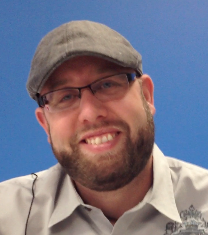 Andrew Erwin, May 29 2013, On set of Mom’s Night Out in Huntsville Alabama
Andrew Erwin, May 29 2013, On set of Mom’s Night Out in Huntsville Alabama
Could you describe the movie and why you did it?
Yeah, absolutely. Moms Night Out..Jon and I, we directed and created October Baby, was our first full length feature. And we were trying to look for what our follow up project was going to be. Our good friend Kevin Downs, who’s an actor, producer, had stumbled onto a script that was for moms, just celebrating the beauty of being a mom, of parenting. But the thing that attracted it to us was this was a comedy. And this was something that was very relatable but something that we could kind of take a breath and laugh. And sometimes, including October Baby, there’s so many, you know, really intense serious films, that I think the Christian audience wants to laugh just as much as any other audience. They like to find things that are just lighthearted. But then I think that allows you to look at some really neat issues and messages that are important. But in a way that is a little bit more approachable and humorous, and so we fell in love with the idea and decided to sign on and take on the project and it has become much bigger than we ever anticipated.
What about this movie makes it a Christian movie?
I think our first goal, I mean Jon and I are unapologetically Christian, and our first goal when we take on a story is to tell a good story. To make sure it’s an entertaining movie because we are in the business of entertainment. And if we don’t entertain people, there’s no reason to put our message in there. But I think when we find a story that is entertaining, nine times out of ten, we are attracted to stories that have our values just, you know, intrinsically in it. I think Mom’s Night Out number one, allows us to portray Christians in a positive light. You know, I think comedy allows us to be a little bit more approachable as Christians, especially to a secular audience. If we are able to laugh and kind of let our hair down a little bit, I think that takes a lot of the fear away of the unknown from an audience that doesn’t totally understand us. So it allows us to put good Christian role models out there. So Patricia Heaton plays the pastor’s wife and she does it in an amazing way. Alex Kendrick from Courageous is the pastor. Sarah Drew plays our lead character, the mom, and Sean Astin, her husband, portray a real Christian marriage, where they’re kind of struggling through tings and trying to figure out how to handle all these kids. So that’s first of all. Secondly, I think there’s a really sweet message in this movie, just about the beauty of motherhood, what God sees so special in this amazing position in the family. And then allows us to celebrate that. And also look at just maybe some of the pressures that our society puts on moms versus what God really expects. and then just what it means to be a good parent. So it’s TI’s all in there and I think that really is something Christian audience will resonate with. And also this idea of parenting is something that’s very broad and hopefully will allow us to engage culture in a new way.
Is directing something you’ve always wanted to do or how did you get your start?
[Laughs] Jon and I kind of joined the circus when we were kids. So we’re kind of I guess maybe you’d call us homeschooler carnies. We..my dad was in the industry growing up and we were kind of studio rats and hung around and there was a small Christian camp up in upstate new york called word of life and we went up there and we had a little experience and they asked us to do a little short film for the kids. The best test audience you will ever have is 500 teenagers locked in a room because they will tell you if it’s good and they will tell you real quickly if it’s bad. So that allowed us to do these little films. We started like, Knights of the Round Table and Star Wars and all these things. We watched how it engaged the kids. We fell in love. It was like…it was just…we got just hypnotized by it. This is something we’d love to do for the rest of our lives. We didn’t have a ton of experience beyond just hobby. There wasn’t really a film industry here in Alabama to speak of. So we just tried to figure out by trial and error. We moved on to doing music videos. Then documentaries. And then ultimately decided to just go ahead and make the jump to feature films. It’s been about…from when we were kids starting…it’s been about an 18 or 19 year process, but it’s something we’ve always wanted to do.
What was your first film that you did?
It was October Baby. And that was, you know, Jon and I had kind of taken a break on directing stuff together just for the summer. He really wanted to go do Courageous so he went and directed second unit for the Kendricks in Courageous and I stayed in music videos and did one for Casting Crowns and Montgomery Gentry. Jon while he was there, Alex and Steven pulled him aside and said, what’s your purpose for what you do? And Jon said, Well to get a paycheck. And they challenged him and said it’s time for you to step off the sidelines. So he’d been dabbling for this script for October Baby and he came home and put it in front of me and just said I think this is our first feature. I read it and fell in love with the story. It was risky. We decided to do it. Did it on a shoestring budget and the next thing you know it was on the front page of the New York Times. It found its audience and that led to this. So…(inaudible)
On Casting….
We’re a SAG film, so we cast some locals, but we did a lot of our casting out of LA and found some amazing actors, so pretty much every part that we went to cast, we got our first choice.
Can you talk a little bit about being a hybrid, working with LA and also doing your own thing? How does that work for you?
I love it. As a Christian, I really love engaging Hollywood. I don’t think…I think as I’ve seen it, you know, Hollywood is not necessarily intrinsically bad or evil. It’s a business. There’s people that use that for bad things and there’s people that use it for good things. I think as Christians sometimes we’ve been afraid to engage. While I was getting started with film ministry, I worked at ESPN for years, so I worked the secular side of things for a long time. So As a Christian, I really like engaging people that don’t necessary agree with me. I like having healthy conversations and I guess debunking some of the stereotype. Instead of interacting with them in fear, I like interacting with them with confidence and humility. So as we engage Hollywood, we’ve found there’s a lot of…I don’t require my actors to be Christians, I want the best person for the part, but I’ve been amazed at how many Christians there are in Hollywood and have the same values that work on big things. So the people who came around this project, surprised me, a lot of us have similar values. And on top of that, you get the best person for the role and you get somebody that brings it to life in a whole new way.
Talk a little bit about Soul Surfer. My secular colleagues were, you know, ok with it, some of them really liked it and some of them were ok with it, but they had a level of respect that I haven’t actually seen honestly for any other faith based movie. How does that make you feel? Were you happy with the acceptance that Soul Surfer had? How do you make movies that cross over that boundary?
I think that the first thing you gotta do, is you can’t go to make a movie trying to make everybody happy because I think those are the movies that end up offending more people because you’re trying to..it’s not honest. And I think a lot of times a film audience they can smell a fake a mile away….A filmmaker that’s asking the audience to go on an emotional journey that they haven’t taken themselves. So I think the first thing you’ve got to do is find a story that resonates with you. And is your goal to be not to get a message across but to go just tell a good story. And if you tell it in a way that is honest… I think the other thing that is a philosophy that I have is that um my job is not, I’m not a preacher, I’m not a politician, I’m a filmmaker. I’m a storyteller. So I don’t really need to tell people what to think. I need to challenge people to think. A filmmaker that I really respect, Paul Haggis, said the best films don’t give answers, they ask the most penetrating questions. So I think you know, I think the ones that like Soul Surfer, and some of those movies that have had that crossover appeal, I think that they told a good story that was genuine and that’s not necessarily offensive. Your message is never going to resonate with everybody. There are going to be people that really don’t like it. But I think if you tell a good story and cause people to want to go on this vicarious emotional story that is a film, I think eventually the audience will buy in and they’ll will go wherever you want to go. You just gotta make sure that it’s worth the entertainment and they find it a genuine story.
You film a lot of your movies away from Hollywood, which Hollywood does too, they film all over. So coming to the south, is that an unusual thing? In LA, I talked to…what’s his name….anyway. the director of The Help.
Yes. Tate
Tate. That’s right. Tate Taylor.
I love his work.
Yeah. And he was saying, he wanted to film in Mississippi. He’s native and the story’s set in Mississippi. And that people in LA literally asked, can we get copy paper in Mississippi?
[Laughter.]
And he had to fight that. Have you run into that?
Yeah. Definitely. We’ll have meetings out in LA and the first question will be like, SO Alabama… let’s talk about that.
And I’ll be like [adopts hick accent], guys I swear I only wear my straw hat on Tuesday and my overalls are still in the car, so…
Especially, Alabama with the fledglings film industry are similar to what Tate experienced in Mississippi, still a work in progress. But I think because of people like Tyler Perry in Atlanta and everything that’s going on in New Orleans, Louisiana, I think it’s becoming more popular because of how economical it is to make a movie, how enthusiastic people are here to do the film industry, they’re not as jaded, by the… it still feels new, and then you’re able to make a movie for a lot cheaper than you can somewhere like LA. On a lot of fronts. I think there’s’ a lot of benefit to it. The other reason why we do it is just because I like being close to home. For some reason, this is where I feel most creative. I like the pace of life. I like being in a state where people really don’t know a whole lot about what I do so I can just be a regular person and just be creative and it’s the story, not all the chaos that goes around The Industry. So as long as I can, as long as it fits the narrative and it enhances the story, I’ll keep making movies here as long as I can.




